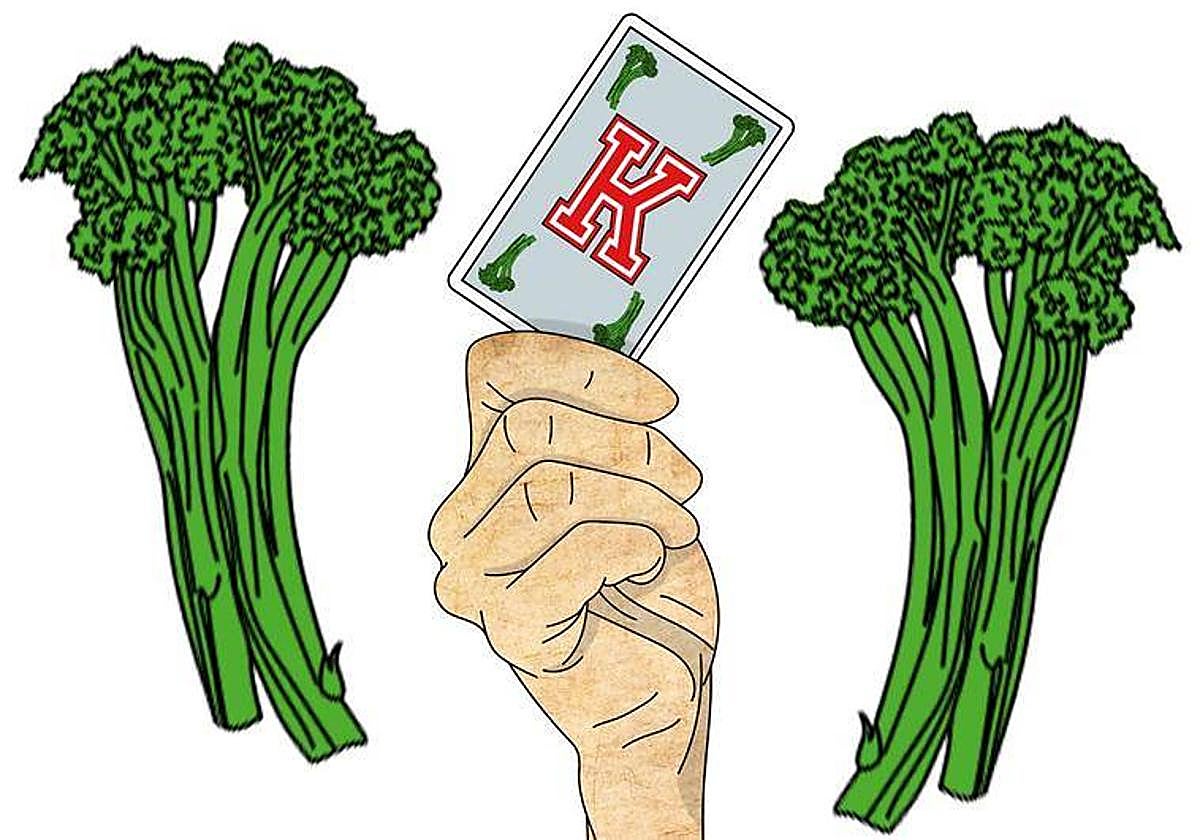

Sections
Highlight

Marta Fernández Vallejo
Friday, 28 July 2023, 17:58
Vitamin K is a great unknown. Most consumers would be unable to answer what it is good for, what problems are caused by a lack of it, or in what foods it can be found.
Despite so little being known about it, vitamin K plays a very important role in our bodies: from controlling bleeding to keeping bones strong and reducing the chances of breaking a hipbone. The latest scientific studies support its benefits for the elderly and its contribution to healthy ageing.
Which foods contain vitamin K? Vegetable oil, spinach, chard, kale and green leafy vegetables in general (watercress, endive, cabbage, red cabbage...) Some fruits like blueberries and figs. Meat, cheese, eggs and soybeans.
What is the daily requirement? For those in generally good health, the doses are: children up to 10 years, 55 microgrammes per day; females aged 10-20, 70; adult females, 90; males aged 10-20, 70; adult males, 120 (100 microgrammes equates to 125g of vegetables.
When is it not advisable to take Vitamin K? Patients who take anticoagulants such as the popular Sintrom or Aldocumar should avoid vitamin K supplements or foods rich in it because the effects of these drugs are modified by foods that contain vitamin K.
One of the main functions of vitamin K is to facilitate blood coagulation, explained Pablo García de Frutos (researcher and doctor of Pharmacy). It also helps to produce proper tissue development and protects bones. Due to its ability to improve the control of calcium levels in our blood vessels, it makes for better prevention of heart disease.
Lastly, it also reduces the possibility of liver-related diseases appearing.
This is a more recently discovered vitamin than others. In 1930 the German biochemist, Carl Peter Henrik Dam, was looking for the causes of delayed clotting and continuous bleeding suffered by birds being fed a very low-fat diet.
He came up with a solution by feeding the birds some leafy greens and he found that the greens had a hitherto unknown substance. Once isolated, he named it vitamin K, taking the first letter that comes from the German word for clotting, 'Koagulation'.
In the 1990s another fundamental discovery about this nutrient was made: a vitamin K-dependent protein was isolated.
This protein makes it easier for the cells of the immune system to recover damaged tissues. As such, it "helps to eliminate cells that are in the process of irreversible death and to regenerate new cells", stated the researcher.
To do this, it triggers a very important process in the afflicted organ "so that it responds to chemical and nutritional damage such as from alcohol, certain diets or toxic substances."
"Damage to the cells that make up our organs accumulates over the years and is part of the ageing process." Therefore, cell repair systems such as those represented by these vitamin K-dependent proteins "increase in importance as the years go by".
Many scientists have proposed increasing the intake of vitamin K in the elderly.
It would make it possible to prevent calcification of blood vessels, to improve bone health by reducing osteoporosis and to strengthen tissue repair systems.
"For these new, age-related functions, boosting vitamin K by consuming vitamin K-rich foods such as spinach, chard, kale, and other leafy greens in general could improve health," said García de Frutos.
The latest research backs up the benefits of vitamin K for the elderly.
A team of scientists from the Neuherberg Institute for Metabolism and Cell Death in Germany tested its role as an antioxidant.
The study, published in the journal Nature, showed that its power to efficiently inhibit cell death would help not only in ageing issues, but also in possible treatments for diseases such as Alzheimer's.
The ability of vitamin K to strengthen bones and thus prevent fractures has also been tested in human trials with good results.
The Institute for Nutrition and Health Innovation at Edith Cowan University (Australia) analysed, over 14 years, the relationship between hospitalisations for fractures and vitamin K1 intake in 1,400 elderly Australian women.
They found that women who ate more than 100 microgrammes of vitamin K1 (equivalent to about 125 grams of dark leafy vegetables or one to two servings of greens per day) were 31% less likely to suffer a fracture compared with participants who ate less than 60 microgrammes per day - the current recommended daily allowance for vitamin K for women.
The results were even more positive when it came to hip fractures, with those who consumed the most vitamin K1 cutting hospitalisation by half.
Vitamin K deficiencies in adults are rare because our intestinal flora (gut bacteria) produce precursors to vitamin K, and so a varied diet is enough to cover the daily requirement for this micronutrient.
Deficits occur in adults only "when there are disorders in intestinal absorption, for example after taking certain medication for a long period or for some type of ailment."
It is common in newborns because it is hard for this vitamin to pass through the placenta's natural defences. Therefore, at birth, the deficiency is met by administering a dose of vitamin K to newborns to prevent possible bleeding, which is rare but can have serious consequences.
Noticia Patrocinada
Publicidad
Paco Griñán | Málaga
Cristina Cándido y Álex Sánchez
Esta funcionalidad es exclusiva para registrados.
Reporta un error en esta noticia

Debido a un error no hemos podido dar de alta tu suscripción.
Por favor, ponte en contacto con Atención al Cliente.

¡Bienvenido a SURINENGLISH!

Tu suscripción con Google se ha realizado correctamente, pero ya tenías otra suscripción activa en SURINENGLISH.
Déjanos tus datos y nos pondremos en contacto contigo para analizar tu caso

¡Tu suscripción con Google se ha realizado correctamente!
La compra se ha asociado al siguiente email
Comentar es una ventaja exclusiva para registrados
¿Ya eres registrado?
Inicia sesiónNecesitas ser suscriptor para poder votar.